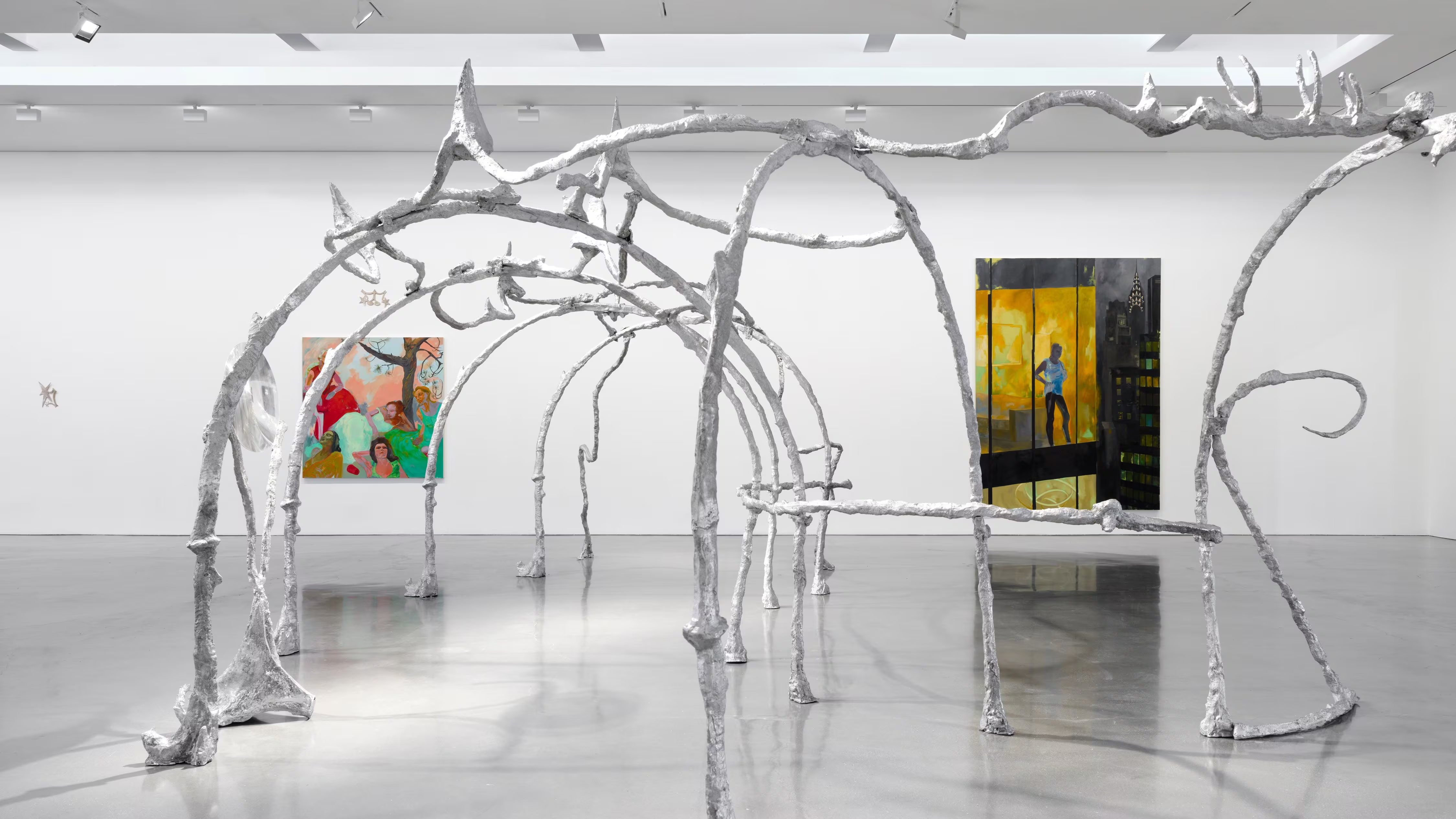
Two remarkable talents from Japan, each with a unique multicultural background; one is of American and Korean-Japanese descent, and the other one has Iranian, Italian, and Japanese heritage. Kiko Mizuhara, who has been freely expressing herself by crossing over the boundaries of genres and media, and works out of Los Angeles, and Kemio, who is growing his audience beyond YouTube from his base in New York, share the common experience of growing up “half” in Japan. They freely discuss their post-Japan experiences, the changes they’ve undergone, and what they miss about Japan.
Kiko Mizuhara: It is not so much that I left Japan—I still go back and forth, and it's only recently that I got a place to live in [Los Angeles]—but the reasons were that I have an American boyfriend, that I started working with American management, and to be frank, it is hard to make money in Japan because of the weak yen.
Kemio: That is super important.


KM: Before, I already had a lot of work overseas, mainly in fashion, and when I had the first meeting with my current management team, I realized that they appreciated my past work that I found interesting, such as fashion editorials and Kiko Kikaku [Mizuhara’s Amazon show], and I felt I might be able to make it work. It felt like perfect timing, as I had enjoyed Japan to the fullest during the pandemic. I had some anxiety over the difference in the environment from Japan, where everything is so convenient, and car-centric LA culture, but you only live once. How about you, Kemi-chan? You were so young when you came.
K: I was about 20 years old. I came because I saw people like you, Kiko-chan working in Japan but also active in multiple global markets. I wanted to grow up to be able to work in various places.

_result.avif)
KM: Really? That makes me happy.
K: You are the queen! Also, where I grew up [Kanagawa Prefecture] was almost exclusively Japanese, which made me want to know more cultures and live in them. When I saved up enough money, I took off, and eight years have passed already.
KM: You didn’t speak English at first, right? Wasn’t that tough?
K: It was fun! I had struggled in Japan, and I was exploding with the desire to see different things. So, I used dating apps and went on dates all over the place with all these men. Kiko, did anything change for you after moving to the U.S.?

KM: I learned a lot in the Japanese entertainment industry, which I was happy about at the time. Now that I have ventured out, I have a sense of security, and I feel that there are people out there who can resonate with me more. Looking back, I had my struggles there. I deleted my X account because all these petty things were said about me that were making me sick. In the U.S., everyone is originally an immigrant; there are many foreigners, there is no concept of “half,” and being mixed is the norm. People respect my identity as Korean, Japanese, and American. Growing up in Japan, I have never thought of myself as American, but this is sort of my homecoming to America. It has been a year or two since I truly understood that if I thought I was, I was. This past year or two made me truly understand that if I think I am, then I am.
“We Japanese can communicate without words, or communicate in the atmosphere, but in America, if you don't put it in words, it won't come across”
— Kiko Mizuhara
K: In the U.S., you decide who you are. It’s all about self-expression, and what you say about yourself really gets respected.


KM: When I came to the U.S. for the first time since the pandemic, people asked me all kinds of questions. I had always had the image that Americans like communication and discussion, but I realized that it was also a process of understanding myself as I tried to answer the questions. I felt like that was something I needed now. When I express myself in Japanese onomatopoeic words, like funyafunya, or hee, or other uniquely Japanese sounds, I can't explain it to my boyfriend in words. We Japanese can communicate without words, or communicate in the atmosphere, but in America, if you don't put it in words, it won't come across. Kemi-chan, what do you think?
K: The culture of modesty that exists in Japan does not exist in the U.S., so you can’t put yourself down. In Japanese, you can carry on a conversation by reading the other person's facial expressions and atmosphere without using words, but in the U.S., no one picks it up when you do that. I had a hard time at first. I expected the other person to understand without me saying anything.
KM: In Japan, bringing up your feelings often gets received as negative, but here, everyone is very sensitive to their own feelings. People go to therapy, and people are very active in talking about what is going on in their hearts. In Japan, it is taboo to talk about mental stuff, especially among men, so people tend to turn to alcohol and such.


K: When I came here, I was surprised that it is accepted when people cancel plans because they’re not in the mood.
KM: So was I, but when you think about it, it happens to me too. I have been there. I couldn't say I wasn't in the mood, so I would make up excuses. But it is okay to say, “I’m feeling anxious today, so I’ll take a break.” I’ve been meditating every day for about two months now. When Naomi Osaka withdrew from the French Open due to mental health reasons, many Japanese didn’t get it because they thought it was an opportunity, but I started to understand how important it is to think about your mental state.
K: I was surprised to see same-sex couples pushing strollers. It was amazing to see that same-sex love exists in everyday life, not just in gay bars. I realized that a change in law means a change in life, and this is what made me want to see a change in Japan as soon as possible.

KM: People in the U.S. stand up for themselves. Many people in Japan do too, but there’s a thick, immovable rock that keeps their voices from reaching the center. In the U.S., there’s a history of voices being heard. In Japan, I’ve never experienced something changing because I spoke up. I also have had scary experiences after I voiced my opinions. But in the U.S., everyone clearly states their beliefs. There’s a process of understanding yourself through discussions with others, and I feel like it’s something important for me right now.
K: The difference might be that politics is directly connected to daily life here.


K: From outside of Japan, the convenience there is amazing, isn’t it? You can access convenience stores 24 hours a day. New York has many Japanese restaurants, and they’re delicious, but they’re also expensive. I miss the ease of access the most.
KM: I was a bit worried about how my diet would change when I moved to the U.S., but I’m happy with the organic vegetables we can find at farmers’ markets, grown by real people. I love fermented foods like umeboshi, miso, and natto, but it’s not the same as in Japan, so I’m thinking of learning how to make them myself. Every time I go back to Japan, I think there’s no country more convenient, and I’m grateful for it, but there’s also a dark side to that convenience.

















.avif)


_result_result.avif)



.avif)

_result_result.avif)

_result_result.avif)
.avif)

_result_result.avif)


_result_result.avif)


.avif)




.webp)

.avif)















%20(1).avif)
.avif)




.avif)










.avif)


.avif)





















.jpeg)

.avif)

_11%20x%2014%20inches%20(2).jpg)







.avif)

.jpg)

%20(1).jpg)
.avif)
.jpg)

.jpg)
.webp)


.webp)



.webp)


.webp)


.avif)












.avif)
.avif)












.avif)



.avif)




















-min_result.avif)









.avif)







3_result.avif)
_result.avif)






_result.avif)




.avif)




.avif)













_result.avif)




%2520(1)_result.avif)
_result.avif)


_result.avif)

_result.avif)



.avif)

.avif)






.avif)














.avif)


_result_result.avif)
















-min_result.avif)






.avif)
.jpg)
















_result.avif)

.avif)


.avif)







.avif)





.avif)

_result.avif)



.avif)












.avif)


.avif)














.avif)




.avif)








.avif)

.avif)

.avif)



.avif)


.avif)




.avif)

.avif)

.avif)
.avif)
%20(1).avif)
.jpg)

%20(1).avif)








.avif)
.avif)

.avif)






.avif)


.avif)
.avif)



.avif)
.avif)
%20(1).avif)

.avif)
.avif)



















.avif)
.avif)
